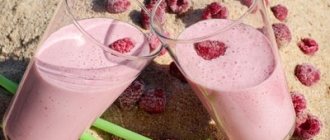In order to avoid panic in the spring about the rollers appearing out of nowhere in the waist area and unsuccessful attempts to fit into clothes that have suddenly become tight, it is important right at this moment to think about how not to gain weight in winter, and even better, how to lose weight during this difficult time. time.
Why is it difficult? Because in winter you can only dream of a variety of vegetables and fruits, and even in the cold, many people are so tempted to snack on something “warming”.
Features of running in winter: help in losing weight
Despite the fact that there are some precautions during such activities, which will also be discussed, it is worth noting that such activities have an excellent effect on health.
Often, running can compete with other physical activities that help you quickly lose weight. Many people are interested in how many calories can be burned when running in winter. Here it is worth taking into account the weight, as well as the speed of the running itself; the higher it is, the more calories will be burned. More details about this can be found in the table.
| Weight, kg Speed, km/h | 60 | 65 | 70 | 75 | 80 | 85 | 90 | 95 |
| 10 | 100 | 108 | 117 | 125 | 133 | 142 | 150 | 158 |
| 12,5 | 125 | 135 | 146 | 156 | 167 | 177 | 188 | 198 |
| 14 | 140 | 152 | 163 | 175 | 187 | 198 | 210 | 222 |
| 16 | 160 | 173 | 187 | 200 | 213 | 227 | 240 | 253 |
| 18 | 180 | 195 | 210 | 225 | 240 | 255 | 270 | 285 |
Does anything depend on running speed during training? Jogging, as a rule, does not exceed a speed of 10 km/h. With such loads you can run long distances. If you reach a maximum speed of 18 km/h, sprint, then you should be careful not to run at this pace for more than 60-90 seconds. This can be extremely draining on the body. The most optimal speed for running in winter is 10-14 km/h.
It is also worth considering that during severe frosts you should try to choose an area where there is no ice, and not too snowy. In any case, jogging in winter, slippery paths, frost and wind create additional stress on the body, which allows you to lose excess weight faster.
Another factor to consider is the length of your runs. Some may believe that by running for 3 hours you can lose a lot of calories and then calmly do your usual things. In fact, long runs greatly weaken the body; after them, it is imperative to replenish energy reserves with a balanced diet.
On average, to lose weight and maintain a healthy lifestyle, it is recommended to run 15-40 minutes daily, depending on the body’s endurance, needs, age of the person and body weight.
Another common question that can be confusing for some when playing sports. This is especially true for beginners. Some people believe that by burning 100 calories while exercising, you can lose the same number of grams of fat. In fact, not only fat is burned, but also fluid in the human body. According to calculations, in order to lose 100 grams of fat, you need to burn about 900 calories.
The benefits of jogging in winter
In winter, jogging is effective because it allows the body to quickly harden. At the same time, the cardiovascular system begins to function more actively. In addition, jogging is a good way to prevent oxygen deficiency in the body.
Often running paths in winter are slippery, which contributes to increased work of the following muscle groups:
- increases tension in the calf muscles;
- affect the functioning of the ankle joint;
- are an excellent way to pump up the muscles of the thighs and buttocks, as well as quickly remove excess fat deposits from these areas of the body.
Interesting fact
Winter jogging is 30% more effective than in summer due to increased loads. They influence the burning of more calories and influence the gradual elimination of fatty tissue.
The most basic advantages of running in winter are as follows:
- it helps strengthen blood vessels and joints;
- affects the hardening of the body, increases the threshold of resistance to infections;
- promotes relaxation of the nervous system, helps relieve the brain after a hard day;
- effectively reduces cholesterol levels;
- slows down the aging process of the body.
Hot spices
The hot taste of peppers and chili is caused by capsaicin. This nitrogen-containing organic compound aids digestion and increases body temperature. This speeds up the burning of calories. Black pepper, turmeric and ginger will have a similar effect. Contraindicated for use by people with heart disease or ulcers.
Winter is a great time to burn extra calories. But most people do not take up this weight loss option. In winter, laziness and reluctance to do even ordinary things prevail. Some people begin to lose weight in late winter or early spring.
Who is not recommended to run in winter?
The most common contraindications for running in winter are chronic diseases of the respiratory system. This includes influenza, ARVI, bronchitis, and pneumonia. It is also worth considering that if you have recently suffered from infectious diseases, jogging should be postponed for a while. During such a period, the body is extremely weakened, and cool air can cause harm to it. In addition, in such situations the human body cools down much faster and there is a risk of freezing.
It is also worth paying attention to those who have problems with blood vessels. It is recommended that you run with caution both in winter and summer. If, after consulting with a doctor, you still decide to go jogging, then you should exclude strong physical activity and reduce the time for jogging.
It is also worth remembering the most important rule when running in winter: if the temperature outside is below -24 degrees, then jogging is strictly prohibited. In this case, they can only harm the body.
Running and losing weight: the most popular myths
There are a fairly large number of myths about running and weight loss that many people encounter sooner or later. They often become very unpleasant barriers to achieving an ideal figure or quickly losing excess weight. So, here are a few of the most popular myths about running that everyone should know about:
Myth 1. If you want to lose weight, run faster
Jogging is a thing of the past, as some may point out. In fact, if there is a need to get into good shape and maintain a healthy lifestyle, then jogging will help with this. If you run too fast, the body quickly depletes its energy reserves, and various health complications can also arise.
Myth 2. If you run regularly, you can eat anything
Of course, training will be a great excuse for those who want to enjoy buns and sweets. And it doesn’t even matter that a person ran for only 15 minutes, and after that he ate half a kilogram of sweets, because if you run, you don’t have to worry about what you eat.
Such thoughts are true only to some extent. It is important to consider how many calories were burned during the workout, and then decide how many are needed to replenish energy after the workout. You can easily gain weight if the calorie content of the foods consumed is greater than what a person spends while running.
Online food diary
Myth 3. To lose weight you need to run in the morning
In fact, everything depends only on the individual capabilities of a person and his chronotype. However, experts say that the most effective time for running is 10-12 am, since it is during this period that the cardiovascular system becomes more active.
Of course, you can go for a run at 5-6 in the morning or even at 8 in the evening, it all depends on the person’s individual schedule, as well as preferences. The number of calories burned will be almost the same regardless of the time of day.
Myth 4. Running with a wrap is the most effective way to lose weight quickly
Why not, because most athletes do this: they wrap themselves in film and quickly lose weight. What's really going on? Using wraps, you can artificially increase the temperature of tissues and increase the intensity of sweating. In this way, it will be possible to get rid of excess fluid in the body, but after a few days it will completely return. This method does not in any way affect the intensive burning of fat deposits.
Arrange fasting days
How to eat in winter to actually lose 10 kg? On days when you don't work and don't use a lot of energy, it's a good idea to make them fasting days.
During a fasting day, it is not at all necessary to remain hungry, but you should save only lean types of meat, fish and dairy products, vegetables, and buckwheat in your diet.
You can also add unsweetened apple varieties to your food. This diet will allow your stomach to rest and gain strength.
What you need to know before you start running in winter
Most people do not know what jogging rules exist. In addition, some do not even bother at all about proper clothing and safety measures during training. It is because of this that viral diseases, hypothermia, and other problems that arise due to negligence can most often occur.
In order to protect yourself and make your jogging more comfortable and efficient, it is important to take care of the following:
- Choose special running shoes, and their soles should be protected from slipping, as well as be warm and comfortable.
- Thermal underwear must be worn if the outside temperature drops below 0 degrees.
- You need to go for a run prepared: do a set of exercises at home. A little warm-up will help you get into the right frame of mind.
- While jogging, be sure to inhale air through your nose and exhale through your mouth.
How many times should you run to effectively lose weight? Experts say that to achieve quick results you need to run 4 times a week.
Running in winter is a useful activity that will help you quickly lose weight, get your figure in good shape, and saturate your body with oxygen. It is also an excellent preventive measure for many diseases of the musculoskeletal system and the cardiovascular system. Of course, regular exercise helps develop willpower and also helps lift your mood even in bad weather.
The most important thing is to follow all safety measures while running in winter and try to achieve a positive result after the first training sessions. Effort and focus will help you overcome any difficulties.
There are seasonal vegetables
According to nutritionists, in winter the diet should contain foods high in vitamin C. These are primarily berries, citrus fruits and sauerkraut.
“It’s not for nothing that it was always salted and fermented for the winter. Plus, it contains a lot of lactic acid bacteria,” noted Apletaeva. You can add frozen berries to your porridge in the morning - cranberries, currants, cherries.
Photo: tomilina/depositphotos
Summer vegetables and fruits, leafy greens, fresh cucumbers and radishes in winter are not grown in natural conditions, but in greenhouses, without sunlight. To grow them, you need a large amount of fertilizer. The question immediately arises: why do we need vegetables and fruits that are low in vitamins? Sometimes they are even dangerous due to their high nitrate content. Summer fruits and berries from hot countries are treated with a special compound during transportation.
In winter, you need to eat more traditional vegetables - beets, carrots, onions, potatoes, cabbage, etc.











